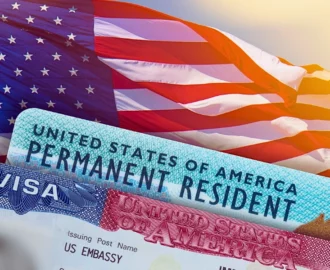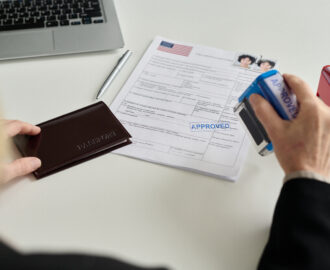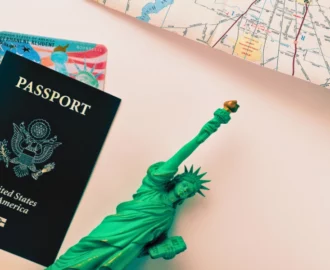If seeking immigration status through your job, you will want to know, “what do the priority dates mean for employment-based immigration?” Priority dates establish an immigrant’s place in line when attempting to receive a green card. They apply to employment-based immigration along with family-based immigration. It’s important to understand what your priority date is to figure out when you’ll be able to receive your green card.

What Is a Priority Date for Immigration?
During the employment-based immigration process, you will receive a priority date. For immigrants in the U.S. for work, the priority date is typically the date when the U.S. Department of Labor (DOL) obtains the labor certification application that the immigrant’s employer submitted. The priority date also applies to family-based immigrants who need a family member to file the appropriate form.
Once they have reached their priority date, immigrants may be able to proceed with the application process.
What Determines Who Needs a Priority Date?
Some immigrants won’t need to wait for a priority date to continue with the immigration process. If they are immediate relatives, or their visa numbers are current, individuals may not need to wait at all.
However, you will need to wait under certain circumstances. Specifically, if you are immigrating to the U.S. on an employment or family basis, a priority date will apply if you are in a preference category that is not current. Because the annual number of visas issued is limited in certain categories, individuals may have to wait for their turn in line to obtain a visa.
What Influences the Priority Date?
A few key factors will determine what kind of priority date you have as an immigrant. The waiting time will depend on:
- The number of visas in your specific category
- The limits of visas for each country
- The supply and demand for visas
How to Determine Your Priority Date for Immigration Purposes
If you’re in the country to work under an employer, the priority date will differ depending on the specific category you’re in, such as:
Workers Requiring DOL Labor Certification
Your priority date will be the date when DOL receives your employer’s labor certification application, which will enable you to move forward. To facilitate this, employers need to file Form I-140 Immigrant Petition for Alien Worker within 180 days of the specific labor certification’s approval date. The labor certification will expire if the petitioner fails to meet this time constraint.
Preference Categories That Don’t Need Labor Certification
If the DOL doesn’t need to accept a labor certification application, U.S. Citizenship and Immigration Services (USCIS) will be the next department to set the priority date. In these instances, the priority date will fall on the date when USCIS receives Form I-140. At this point, USCIS can determine whether the immigrant worker falls under the designated category.
Fourth-Preference Special Immigrants
Special immigrants in this category include religious workers. If you fall under this particular category, your priority date will be when USCIS receives Form I-360.
Fifth-Preference Investors
Individuals who are fifth-preference investors will also go through USCIS. The priority date will be when the government receives Form I-526.
Where to Find Your Priority Date
You can find the priority date for employment-based immigration on the Visa Bulletin.
The government’s Visa Bulletin updates every month. Whenever it updates, you’ll be able to view your priority date based on which green card applications can proceed. You’ll also be able to determine the length of time you need to wait before you qualify for a green card based on the progression of the waiting period. After your employer files Form I-140, you’ll be able to view your progress until the date finally arrives.
Checking the Progress of Your Priority Date
As mentioned, the Visa Bulletin will display your priority date and allow you to track it. You’ll see a complete list of priority dates according to different categories. If you’re wondering how to read the bulletin and understand your specific date, consider when viewing the board, if a visa is available for your country and in your category, you’ll see this reflected in the bulletin. Specifically, if this is the case, the Visa Bulletin will list your corresponding country and category as “C” for “current” upon reaching the priority date. At this point, you will be able to proceed with the application process once the National Visa Center (NVC) gets in touch with you about your application.
In other words, the priority date won’t apply, and you’ll likely be able to proceed with your application. In some cases, the bulletin may show a specific date for your category and country in place of a “C” status. If this date is later than your priority date, this indicates that you will soon be able to continue the application process.
When an Immigration Lawyer May Help
The immigration process can be confusing for many, especially when there are so many elements and steps involved. An immigration lawyer may be able to help you better understand whether a priority date applies to your case and help you determine when you’re likely to be able to continue forward.
Even if you’re unsure what to ask an immigration lawyer when it comes to your priority date, an experienced attorney can still help explain what the priority dates mean for employment-based immigration and guide you through the process. A reliable attorney will be able to sit down with you to discuss your case in a free consultation.
If you want to see an attorney about employment-based immigration, there are some key documents to bring an attorney. Financial documents, court records, copies of your application, and other information can go a long way in helping lawyers paint a picture of your case.
Once your priority date becomes current, you will be able to continue obtaining your employment-based visa and eventually complete the immigration process.




